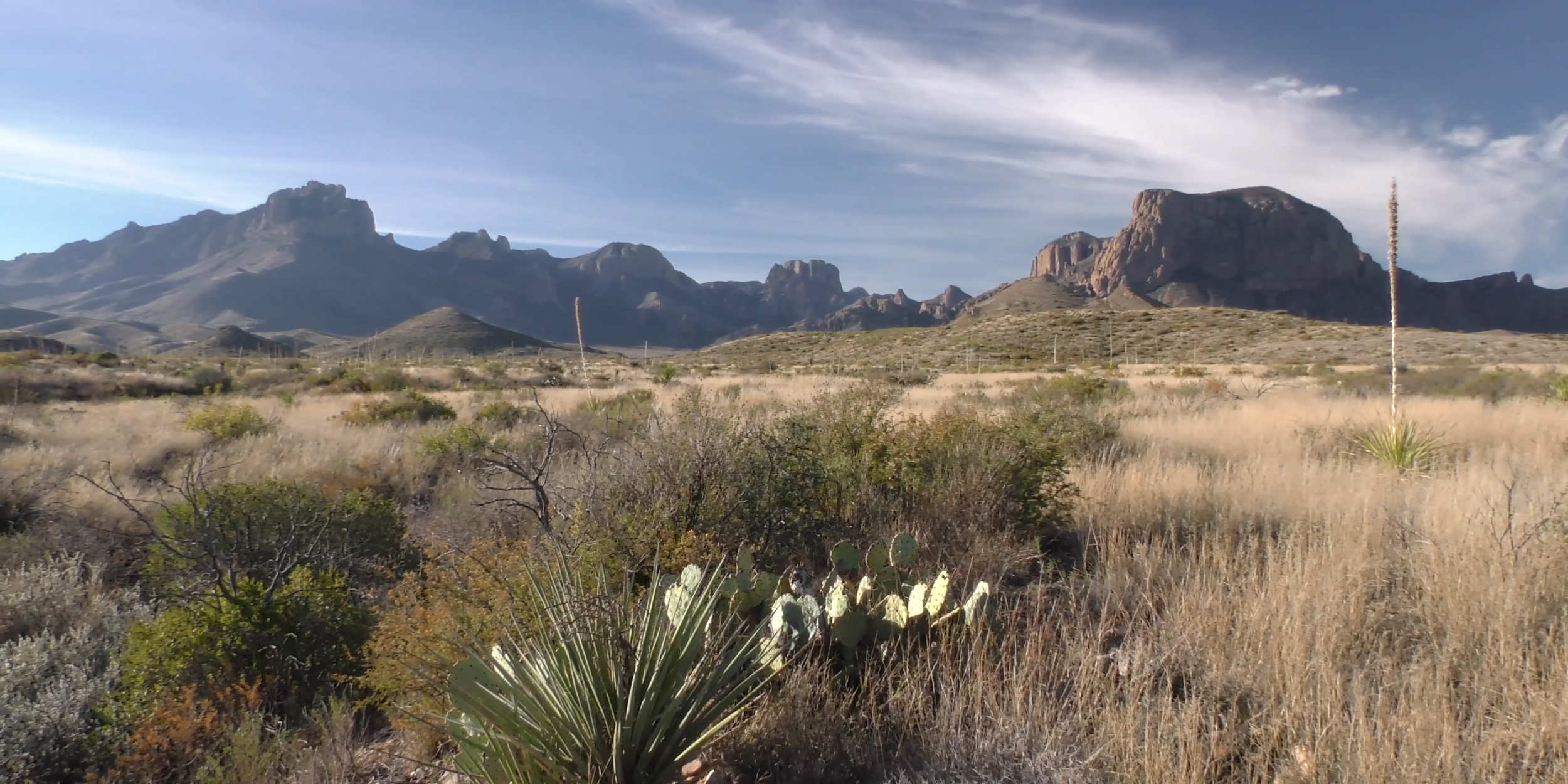
Development by Design in West Texas:
Mitigating Energy Sprawl Through Cooperative Landscape Planning
Kei Sochi, Jon Paul Pierre, Louis Harveson, Patricia Moody Harveson, David V. Iannelli,
John Karges, Billy Tarrant, Melinda Taylor, Michael H. Young and Joseph Kiesecker
May 2021
Stakeholder Engagement Process
The Respect Big Bend Coalition launched a community-driven process in the Tri-County region to inform and guide future development and conservation decision-making. This effort included two parallel workstreams.
1. Convening a Stakeholder Advisory Group (SAG)
The SAG is made up of 14 people who have a stake in the Tri-County region. The group includes land and mineral rights owners, local government officials, energy industry representatives, conservationists and community members – all have deep knowledge of the area, local laws and policies and a view on the feasibility of different conservation and restoration strategies. The Respect Big Bend Coalition and SAG also received input from oil and gas and renewable energy representatives, Texan by Nature and conservation organizations.
Using the Development by Design framework, these stakeholders articulated their values and developed a shared vision for the future of the Tri-County region. Then, based on projections of future energy development prepared by RBB Coalition researchers, the SAG developed recommendations intended to mitigate potential impacts of development on the land and natural resources.
The SAG met bi-monthly over the course of two years to review findings, discuss and shape their conservation vision for the Tri-County region.
| SAG Members | |
|---|---|
| Terry Bishop | Farmer/Rancher, Presidio County |
| Eleazar Cano | Judge, Brewster County |
| Craig Carter | Rancher, Brewster County |
| Krysta Demere | West Texas Diversity Biologist, Texas Parks and Wildlife Department |
| Leo Dominguez | VP University & Student Services, Sul Ross State University |
| Michael Janis | Wildlife District Leader, Texas Parks and Wildlife Department |
| Rainer Judd | President, Judd Foundation |
| John Karges | Associate Director of Field Science, The Nature Conservancy – Texas (Retired) |
| Michael Logan | Community Member, Fort Davis |
| Albert Miller | Rancher, Jeff Davis and Presidio Counties |
| Mo Morrow | Rancher, Brewster County |
| Robert Potts | President and CEO, Dixon Water Foundation |
| Janna Stubbs | Rancher, Brewster County |
| Jan Woodward | Community Member, Alpine |
| SAG Advisors | |
|---|---|
| Castlen Kennedy, Fay Walker | Apache Corporation |
| Jesse Wood | ConocoPhillips |
| Colin Meehan | First Solar |
| Gina Eddy, Emily Jolly, Kristian Koellner | Lower Colorado River Authority |
| Jamie Gentile | NextEra Energy Resources |
| Constance Wyman, Rebecca Zerwas, David Smithson, Therese Harris | Public Utility Commission/Electric Reliability Council of Texas |
| Representative | Rio Grande Joint Venture |
| Charlie Hemmeline | Texas Solar Power Association |
| Matt Gilhousen | Wind Energy Consultant |
2. Engaging the community
The Respect Big Bend Coalition also led outreach efforts to inform and engage community members and interested parties across the state. The RBB Coalition brought these outside perspectives back to the Stakeholder Advisory Group for their consideration.
In-person work in the Tri-County region consisted of a community seminar series, an elected officials’ luncheon, conservation partner brown-bag lunches and dozens of presentations to local community groups. These groups included:
Brewster County Commissioners – Study Butte
Rio Grande Council of Governments
Presidio County Commissioners Court
Fort Davis Chamber of Commerce
Big Bend Chamber of Commerce
Alpine Lions Club
Marfa Rotary and Lions Clubs
Terlingua Ranch Board Meeting
Alpine Chamber of Commerce
El Paso/Trans-Pecos Audubon Society
Rio Grande Joint Venture
Borderlands Research Institute Advisory Board
Texas Parks and Wildlife Division (TPWD) Bighorn Sheep Advisory Committee
Davis Mountains Heritage Association
Texas Agricultural Land Trust (TALT) Advisory Board
NRCS Wildlife subcommittee
Chihuahuan Desert Research Institute
Texas Parks and Wildlife Division (TPWD) Trans-Pecos WMA staff
Big Bend National Park
A full list of meetings and seminars convened in the Tri-County region is available in the “Respect Big Bend Stakeholder Engagement Progress Report – 2019.”
Online, the Coalition cultivated a community of nearly 33,000 social media followers and 1,100 email newsletter subscribers. These platforms were used to share news and research about the Big Bend Region and capture people’s feedback.
RBB Coalition members also shared details about the project with elected officials in Austin, as well as energy companies and trade associations across the state.

